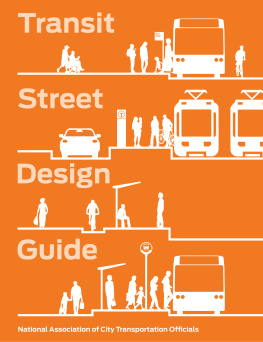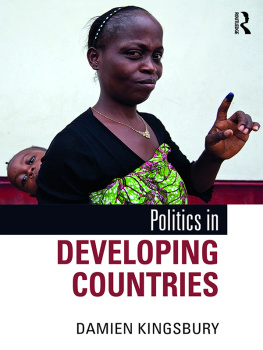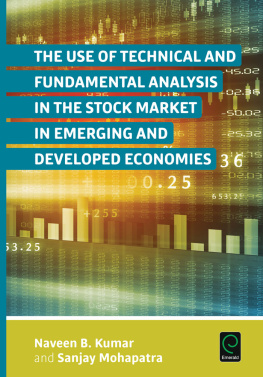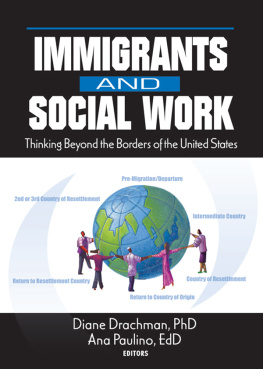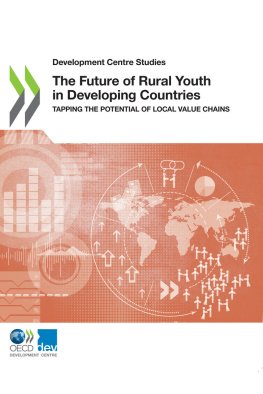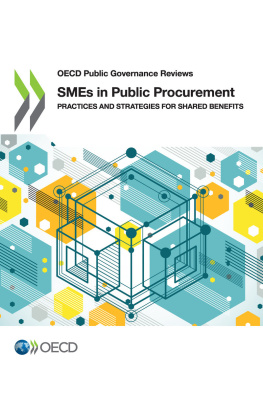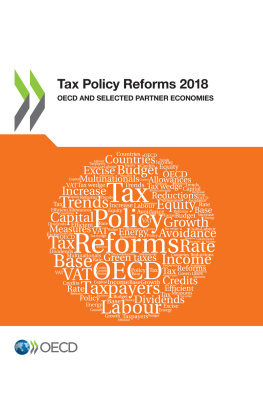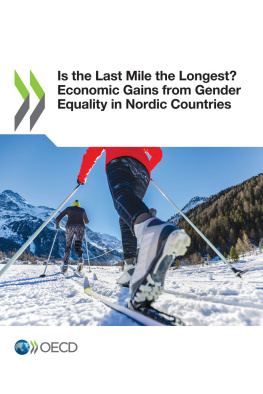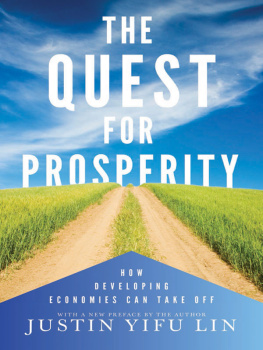coll. - How immigrants contribute to developing countries’ economies
Here you can read online coll. - How immigrants contribute to developing countries’ economies full text of the book (entire story) in english for free. Download pdf and epub, get meaning, cover and reviews about this ebook. year: 2018, genre: Politics. Description of the work, (preface) as well as reviews are available. Best literature library LitArk.com created for fans of good reading and offers a wide selection of genres:
Romance novel
Science fiction
Adventure
Detective
Science
History
Home and family
Prose
Art
Politics
Computer
Non-fiction
Religion
Business
Children
Humor
Choose a favorite category and find really read worthwhile books. Enjoy immersion in the world of imagination, feel the emotions of the characters or learn something new for yourself, make an fascinating discovery.

How immigrants contribute to developing countries’ economies: summary, description and annotation
We offer to read an annotation, description, summary or preface (depends on what the author of the book "How immigrants contribute to developing countries’ economies" wrote himself). If you haven't found the necessary information about the book — write in the comments, we will try to find it.
coll.: author's other books
Who wrote How immigrants contribute to developing countries’ economies? Find out the surname, the name of the author of the book and a list of all author's works by series.
How immigrants contribute to developing countries’ economies — read online for free the complete book (whole text) full work
Below is the text of the book, divided by pages. System saving the place of the last page read, allows you to conveniently read the book "How immigrants contribute to developing countries’ economies" online for free, without having to search again every time where you left off. Put a bookmark, and you can go to the page where you finished reading at any time.
Font size:
Interval:
Bookmark:
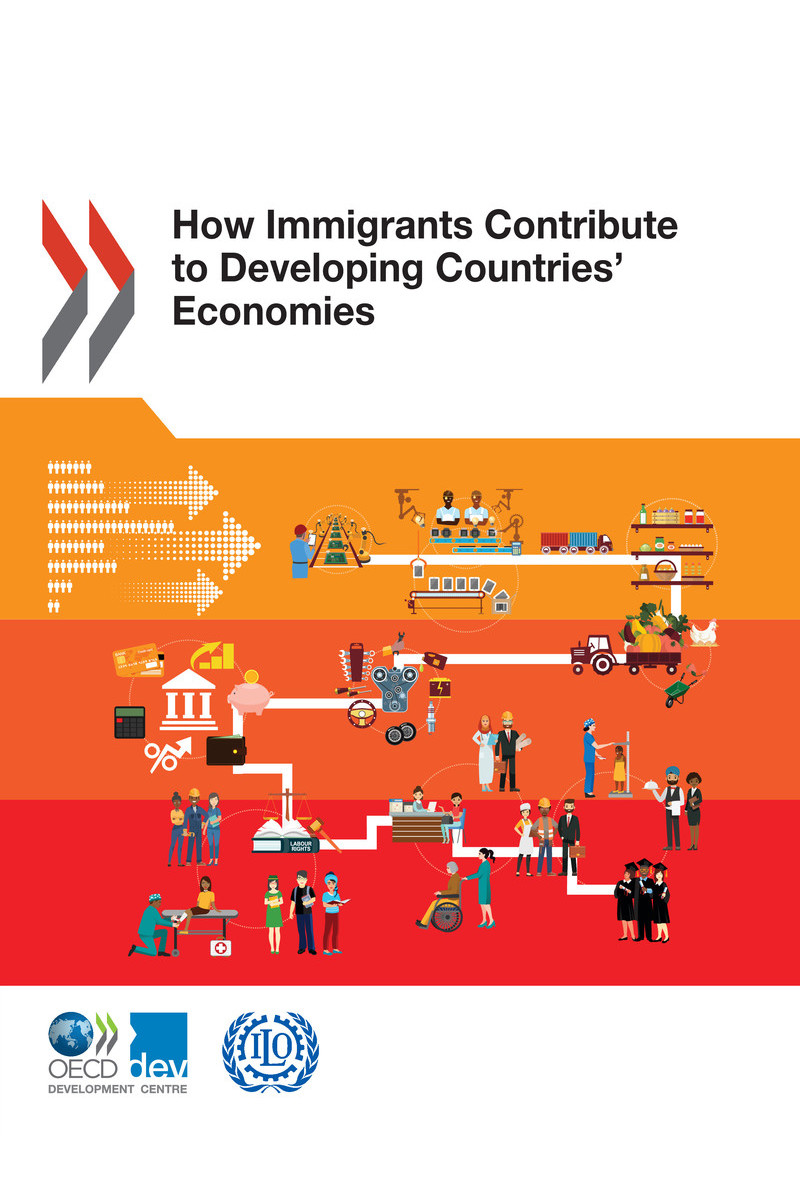
OECD/ILO (2018), How Immigrants Contribute to Developing Countries Economies, OECD Publishing, Paris, http://dx.doi.org/10.1787/9789264288737-en.
Developing countries host more than one-third of international migrants in the world. Most immigrants are migrant workers and are employed either formally or more often informally in their countries of destination. Immigration thus plays a key role in the destination countries economic development. A number of low- and middle-income countries, however, lack evidence and awareness of how immigrants can contribute to different segments of the economies and very few have developed and implemented appropriate policy frameworks. A large informal economy associated with weak labour migration management capacities and a lack of active labour market policies prevent many destination countries from making the most of immigration.
The OECD Development Centre, the International Labour Organization (ILO) and the European Commission have worked together to address these challenging questions. Working across different contexts, the goal of our collaboration is to help developing countries design effective policies for leveraging immigration for positive development outcomes. This includes expanding the evidence base on the contribution of immigration to development, providing advice on the governance of comprehensive immigration systems and linking development strategies for policy coherence within a country and across countries.
This report, How Immigrants Contribute to Developing Countries Economies, is a step forward in assessing the contribution of immigration to development and improving the design of migration and development strategies. It builds on the joint OECD-ILO project Assessing the Economic Contribution of Labour Migration in Developing Countries as Countries of Destination (ECLM). The project carried out comparable analyses for ten low- and middle-income countries Argentina, Costa Rica, Cte dIvoire, the Dominican Republic, Ghana, Kyrgyzstan, Nepal, Rwanda, South Africa and Thailand to present a greater understanding of the different ways immigrants contribute to the economies of their host countries. Different key components of the economy are explored through a combination of quantitative and qualitative methodologies.
The report examines empirically how immigrants affect three key components of the economy: the labour market, economic growth and public finance. It analyses the political and historical context of immigration in each country and suggests ways to enhance the contribution of immigrants in different contexts through appropriate policy responses. The report highlights the fact that the impact of immigration is not straightforward. It depends on the country context and economic conditions, as well as on the characteristics of immigrants. However, any country can maximise the positive impact of immigration by adopting coherent policies aimed to better manage and integrate immigrants so that they can legally invest in and contribute to the economy where they work and live, while staying safe and living fulfilling lives.
The report also provides a basis for dialogue and policy guidance for development practitioners and policy makers who attempt to integrate immigrants into their economy and society for the benefit of both immigrants and native-born citizens. Following the discussion on guidance for actions with key stakeholders and policy makers to be held in each country, the OECD Development Centre and the ILO look forward to continuing their co-operation with partner countries with a view to enhancing the contribution of immigration for better economic and development outcomes .
Mario Pezzini
Director of the Development Centre and Special Advisor to the Secretary-General on Development, OECD
Manuela Tomei
Director of the Conditions of Work and Equality Department, International Labour Organization
How Immigrants Contribute to Developing Countries Economies is the fruit of the joint OECD-ILO project, Assessing the Economic Contribution of Labour Migration in Developing Countries as Countries of Destination (ECLM), carried-out in ten low- and middle-income countries. The project was managed by David Khoudour, Head of the Migration and Skills Unit of the OECD Development Centre, under the guidance of Mario Pezzini, Director of the OECD Development Centre and Special Advisor to the OECD Secretary-General on Development, Federico Bonaglia, Deputy Director of the OECD Development Centre, Manuela Tomei, Director of the ILOs Conditions of Work and Equality Department, and Michelle Leighton, Chief of the Labour Migration Branch at the ILO. Shinyoung Jeon and Hyeshin Park, from the OECD Development Centre, co-ordinated the project, while Theodoor Sparreboom, Chief Technical Advisor in the Labour Migration Branch, led the ILO team. The OECD team included Maria Alejandra Betancourt, Bram Dekker, Fatoumata Diarrassouba and Sarah Kups. The ILO team was composed of Sandra Berger and Jesse Mertens.
The report is a collective work of the OECD Development Centre and the ILO, both of which provided significant contributions, including valuable comments, advice and feedback on each chapter. The OECD Development Centre team drafted was jointly drafted by both teams. Vararat Atisophon, OECD Development Centre, helped with statistical work, while Alexandra Le Cam, OECD Development Centre, and Hlne Lombard, ILO, provided administrative support for the project, including country missions and event organisation. Jill Gaston edited the report and the OECD Development Centres Communications and Publications Unit, led by Delphine Grandrieux and Henri-Bernard Solignac-Lecomte, turned the draft into a publication. The cover was designed by Aida Buenda at the OECD Development Centre.
Font size:
Interval:
Bookmark:
Similar books «How immigrants contribute to developing countries’ economies»
Look at similar books to How immigrants contribute to developing countries’ economies. We have selected literature similar in name and meaning in the hope of providing readers with more options to find new, interesting, not yet read works.
Discussion, reviews of the book How immigrants contribute to developing countries’ economies and just readers' own opinions. Leave your comments, write what you think about the work, its meaning or the main characters. Specify what exactly you liked and what you didn't like, and why you think so.




